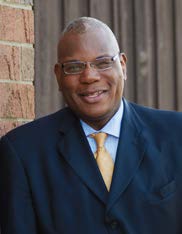
No good reason to evict poor children from their schools
By Rev. RB Holmes
Publisher and President
In January, the day after his father’s holiday, I shared a stage in Tallahassee with Martin Luther King III. Over 10,000 people stood before us, most of them minorities. Many had travelled all night from all corners of the state to send a message to the Florida teachers union: Don’t get between me and my child.
Technically, they were there to fight the lawsuit the union filed to kill the Florida tax credit scholarship. The program is serving 94,000 children from low-income families, including 24,000 in Central Florida.
The issue is bigger than the suit. Most people agree parents have the right to determine the educational destiny of their children. This isn’t a matter of politics. It’s a matter of fundamental decency.
So why does the union persist with its lawsuit? It has been rebuffed twice now, first in circuit court and then in appeals court. Both said the union couldn’t provide any evidence to back its claims of harm to public schools. Yet, the union presses on with an appeal to the Florida Supreme Court.
Search in vain for an answer that has anything to do with helping children.
The union insists the scholarship is an end-run around the 2006 Florida Supreme Court ruling that found the state’s first K-12 voucher unconstitutional. Never mind that scholarship was created in 2001. Never mind, too, that a tax credit scholarship isn’t a voucher. It’s funded by corporate contributions, not government money – a distinction three state Supreme Courts and the U.S. Supreme Court have all found to be legally significant.
The union insists the scholarship drains money from public schools. The claim is baseless. No less than seven independent fiscal impact studies have found the program saves taxpayer money that can be reinvested in public schools. Not a single study has found otherwise.
The truth is, school districts will be financially harmed if the union wins. The value of a scholarship, $5,886, is roughly 60 percent of per-pupil costs for public schools. So how will districts pay for a flash flood of 94,000 students? The blow will be especially tough for fast-growing districts in Central Florida, already reeling to keep pace with normal growth. How will Orange absorb 9,000 more students at once? How will Osceola absorb 4,000 more?
Despite the union’s talking points, the scholarship has nothing to do with a mythical plot to privatize, and everything to do with expanding opportunity. Nearly 70 percent of scholarship students are Black or Hispanic. Their average family income is $24,000 a year. Nearly a decade’s worth of tests data shows us they were typically the lowest performers in their prior public schools, but are now making solid progress.
This program isn’t a threat to public education—it’s a part of it. Thirty years ago “public education” meant one thing: district-run schools assigned to you by your zip code. But every child is different. Today, public education takes many forms—district run magnets, charters, virtual schools, dual enrollment with colleges. Over 60% of children in Dade don’t attend their zoned schools! We even give vouchers to special needs children to attend private, faith-based schools. Why is the union trying to kill the one program that serves poor children of color? A program that serves just 3 percent of our state’s K-12 population, but its most vulnerable?
Thankfully, more people see through the smokescreens. Over 200 Black and Latino ministers from around the state have formally denounced the lawsuit. The union’s former communications director wrote in the Tallahassee Democrat last month that he was no longer proud of the organization. With its attack on the scholarship, he wrote, it was now engaged “in the immoral equivalent of a war on children.”
All these poor parents want is the power to do what families of means do every day – the power to find the best school for their children. Why would anybody deny them that?
Rev. Dr. R.B. Homes is the pastor of Bethel Missionary Baptist Church in Tallahassee, and a member of the Save Our Scholarships Coalition.








